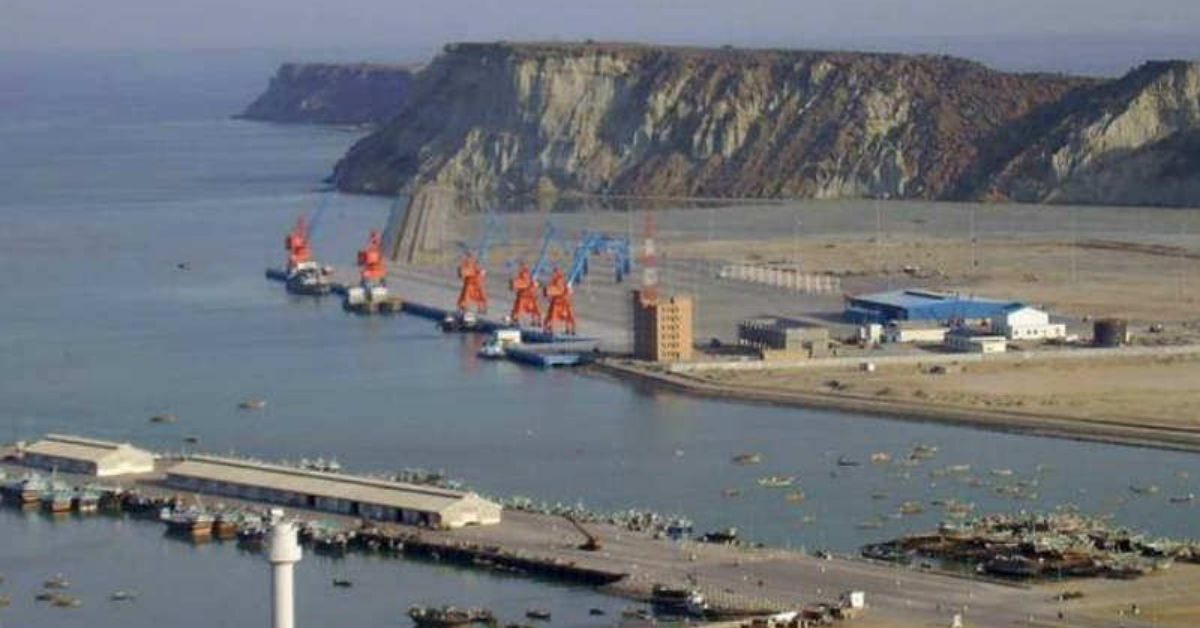India on Thursday strongly objected to the expansion of the China-Pakistan Economic Corridor (CPEC) projects in any third country while expressing concern about its sovereignty and territorial integrity.
Ministry of External Affairs spokesperson Arindam Bagchi made these remarks in response to a question posed over reports that China and Pakistan are planning to expand CPEC projects to Afghanistan.
“We have put out a clear statement where we brought up two major points. One is about the activity in Pakistan Occupied Kashmir (PoK) which is against the sovereignty and territorial integrity of India. We object to this. And the second is that any third nation must not enter as it is a breach of India’s sovereignty,” Bagchi said during a weekly briefing.
When being asked whether India will make any move to address this issue, Bagchi said, “We are not going to speculate on the actions that need to be taken. We emphasized that the entire Union Territory of Jammu and Kashmir is part of India and we object and strongly reject this idea of trying to involve third countries in it.”Moreover, Bagchi also commented on the reports of a Chinese research vessel reaching Hambantota port in Sri Lanka in August. The MEA Spokesperson said, “All of this relates to the same basic elements that there have been activities and projects in PoK.”Last week as well, the Ministry of External Affairs (MEA) said that the government has seen reports about third countries participating in projects of the China-Pakistan Economic Corridor (CPEC) projects, and any such activity by any party directly infringed on India’s sovereignty and territorial integrity.
Bagchi said India firmly and consistently opposes projects in the “so-called CPEC, which are in Indian territory that has been illegally occupied by Pakistan”.
“Such activities are inherently illegal, illegitimate and unacceptable, and will be treated accordingly by India,” the official statement added.
Responding to media queries regarding the participation of third countries in CPEC Projects, the MEA spokesperson Bagchi said: “We have seen reports on encouraging a proposed participation of third countries in so-called CPEC projects.””Any such actions by any party directly infringe on India’s sovereignty and territorial integrity,” he said.
The response of the MEA comes amid reports that Pakistan and China have decided to invite any interested third country to join the multi-billion-dollar infrastructure CPEC project which they termed as mutually beneficial cooperation.
The third meeting of the CPEC Joint Working Group (JWG) on International Cooperation and Coordination (JWG-ICC) was held on Friday, July 22 in virtual mode.In 2015, China announced the China-Pakistan Economic Corridor (CPEC) project in Pakistan worth USD 46 billion, of which Balochistan is an integral part.
CPEC is a part of China’s most ambitious project ‘Belt and Road Initiative’, aimed at renewing the country’s historic trade routes in the coastal countries of south-east Asia.
It would link Pakistan’s southern Gwadar port in Balochistan on the Arabian Sea to China’s western Xinjiang region. It also includes plans to create road, rail and oil pipeline links to improve connectivity between China and the Middle East. The Baloch have opposed China’s increasing involvement in the province.
The CPEC has not benefited the people of Balochistan while people of other provinces enjoy the fruits of the mega project. This has led to widespread protests as the Chinese are viewed as encroachers who are squeezing out all the wealth from the region.
Media reports said that Beijing has been using the CPEC to gain control of the Gwadar port and the region of Gilgit-Baltistan.
Gwadar port, located on the Arabian Sea, will allow China to have a say in global energy economics as the country can use a naval base to hold control over the maritime traffic passing between West Asia.
It is crucial for China to gain control over the Gilgit-Baltistan region (Pakistan-occupied Kashmir PoK), as the region borders the Xinjiang province of China.Since 2010, there have been reports of the growing presence of China in the Gilgit-Baltistan region. It was believed that several Chinese soldiers were present in the region in 2010 to secure road links, and build infrastructure projects, including nearly two dozen tunnels. China’s presence grew in the region three years later following the announcement of CPEC.
The Chinese mega projects are showing an adverse impact on Gilgit-Baltistan’s environment leading to uncontrollable pollution and irreversible depletion of aquatic ecosystems.
Under the banner of CPEC, Pakistan and China are initiating work on mega-dams, oil and gas pipelines, and uranium and heavy metal extraction in Gilgit-Baltistan.
CPEC has been a major cause of militancy and even terror attacks and a sore point with local populations from Gilgit Baltistan and Khyber Pakhtunkhwa in the north to Sindh and Balochistan in the south, who feel neglected and marginalised, while their resources get transferred to Punjab and big cities and now to China. Even Islamabad is facing rising unrest and protests from locals in Balochistan, Gwadar and other areas as they accuse the government of depriving them of basic amenities and rights.







